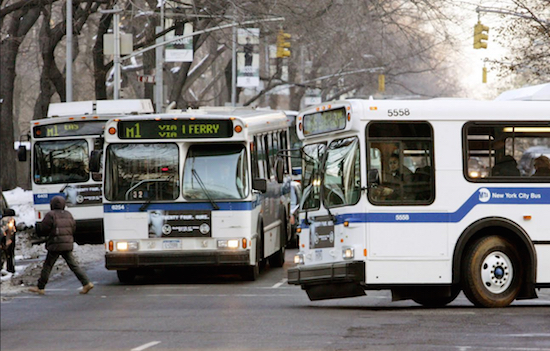L-Train Shutdown: MTA’s plan to add 200 diesel buses could create health crisis
EPA: Will Add Roughly 14,351 Tons of Greenhouse Gas Emissions

New York City buses. AP Photo/Richard Drew
Asthma attacks, pneumonia, pulmonary cancer.
These are only a few of the respiratory and lung diseases that one can acquire from air pollution.
After Los Angeles and Houston, New York City has the third-worst air quality in America among large cities, according to Science magazine.

Brooklyn Boro
View MoreNew York City’s most populous borough, Brooklyn, is home to nearly 2.6 million residents. If Brooklyn were an independent city it would be the fourth largest city in the United States. While Brooklyn has become the epitome of ‘cool and hip’ in recent years, for those that were born here, raised families here and improved communities over the years, Brooklyn has never been ‘uncool’.